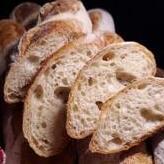-
Welcome to the eG Forums, a service of the eGullet Society for Culinary Arts & Letters. The Society is a 501(c)3 not-for-profit organization dedicated to the advancement of the culinary arts. These advertising-free forums are provided free of charge through donations from Society members. Anyone may read the forums, but to post you must create a free account.
Burgers & Salting
-
Similar Content
-
- 0 replies
- 102 views
-
- 40 replies
- 5,320 views
-
- 33 replies
- 2,310 views
-
- 8 replies
- 479 views
-
- 3 replies
- 508 views
-
-
Recently Browsing 0 members
- No registered users viewing this page.




Recommended Posts